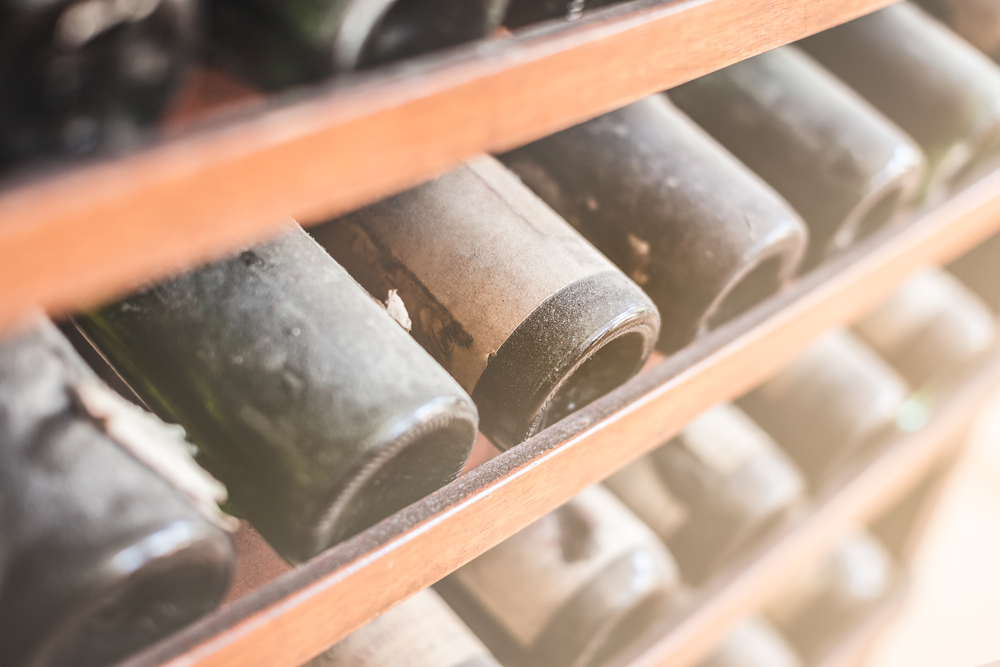Licence All rights reserved. Further distribution is possible only with the consent of the author
On September 29, 1918, the captain of the warship Hellmuth von Ruckteschell issued an order to shoot and sink the British cargo ship Libourne off the coast of Cornwall. It was not a blow to the British war effort, as Germany had hoped. 425 pounds of pickled cucumbers and 10,000 bottles of alcohol drowned. A team of underwater explorers is now trying to get permission to retrieve bottles of white and red wine or champagne, uniquely preserved in darkness and depth after a hundred years, write The Times list.
Although the wreck is slowly being eroded away, up to 90 percent of the alcohol has been preserved and explorers wanted to make money from it. However, their plan ran into a minor hitch. The ship Libourne in question is under the jurisdiction of the British Government, whose policy does not permit the salvage of wrecks for commercial purposes.
“I thought it was absolutely crazy,” said Daniel Jayson, a member of the 10994 group, which is trying to get the bottles back. “This is a perishable cargo, and we have been told to let it go. There is no common sense here,” he added.
It all started as a “little bit of fun” for a team of explorers from different backgrounds. Jayson is an underwater engineer, but his colleagues include former investment banker, financier and sailor Luc Heymans, who has previous experience in the field. In Indonesia, he holds a treasure trove of $80 million, including crystals, pearls and gold.
The team initially searched for “affordable” wrecks in British waters. When he reads the Navy news, they are trapped in the wreck of the Libourne, which was carrying much-needed coal to Bordeaux, but returned with more luxurious cargo.
They tracked down the ruins and their curiosity paid off. The mystery is that the shipping list doesn’t contain most of the alcohol. What’s even weirder is that no one has demanded insurance payments for the lost drinks. However, it paid for pickled cucumbers.
“We found Benedictine liquor, pint bottles and larger bottles of champagne, white wine from the Sauternes region and large bottle of red wine from Bordeaux in the main crew category,” said team member Ian Hudson. There are also alcoholic beverages, including brandy. Benedictine liquor experts have confirmed that herbal drinks are destructive.
https://t.co/qpdQ0r0rF6 – On September 29, 1918, Hellmuth von Ruckteschell, a U-Boat captain, gave orders to shoot and sink the Libourne, a British cargo ship, off the coast of Cornwall. This was not the blow to the British war effort that Germany had hoped for. 1/3
– Pirate Irwin (@pirateirwin) May 28, 2022
The team doesn’t legally store any wine, but it can be very valuable. A similar vintage of fine wine found in Swedish waters recently sold for £9,000 and there are plenty of reasons why some speculators are willing to pay for it.
“It’s very likely that some or many of them are good and maybe very good,” says wine expert Anthony Hanson, who works with Christie’s. “If they come from really good vintages, they can slowly ripen in the cold and ripen well,” he adds.
But not all may be so delicious. If they come from the wrong year, they may age very badly. Hudson says such bottles have earned the nickname “millionaire vinegar”. The only way to find out is to pull them out.
The UK government’s policy, which is in line with the 2001 UNESCO Convention on the Protection of the Underwater Cultural Heritage, prevents the Government from following this as a good practice, even if it is not a signatory to the Convention. The shipwreck is not a war grave, and little remains of the ship itself, except for a few scraps of metal and a cauldron, as the area has been searched by trawlers for years.
The team insisted that the rescue could only be carried out with commercial support, but the Ministry of Digitization, Culture, Media and Sport is committed to complying with the UNESCO Convention.
“The project’s stated goals are currently not in line with government policy and require revision which would indicate the need for an archaeological project,” Caroline Dinenage, deputy director of the UK Ministry of Culture, wrote in a letter last year.
The ministry did not change its position, but insisted that legislation was not needed to change the current rules.
Not much can be found about the wreck. It is even known that the man who drowned Libourne was eventually brought to justice. After World War II, von Ruckteschell was convicted of war crimes after opening fire on merchant ships, although they surrendered. Such a reputation accompanied him during the previous conflict. He died in prison in Germany.
advertisement

“Certified bacon geek. Evil social media fanatic. Music practitioner. Communicator.”







